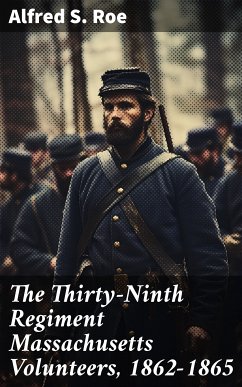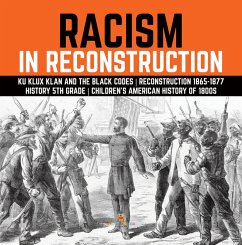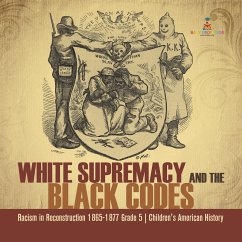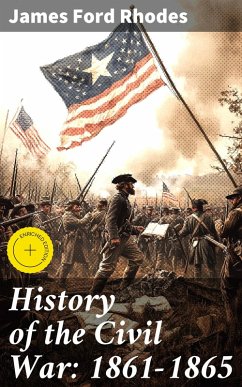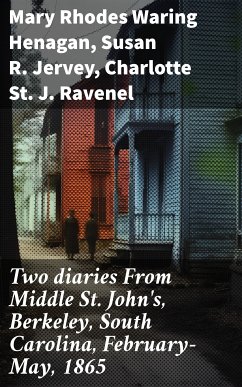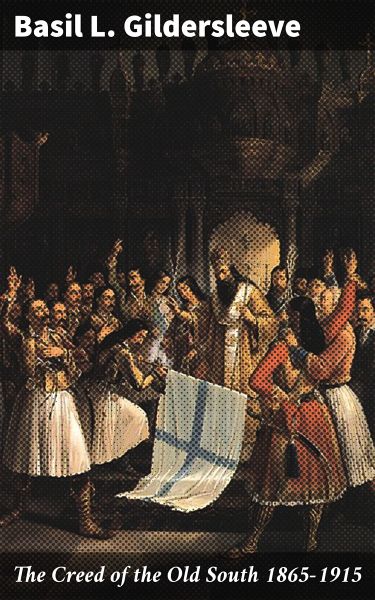
The Creed of the Old South 1865-1915 (eBook, ePUB)
Enriched edition. Unveiling the Ideological Foundations of the Old South
Kommentar: Byrne, Chloe / Redaktion: Good Press
Versandkostenfrei!
Sofort per Download lieferbar
0,49 €
inkl. MwSt.
Weitere Ausgaben:

PAYBACK Punkte
0 °P sammeln!
Basil L. Gildersleeve's "The Creed of the Old South 1865-1915" is a seminal work that delves into the intricate social, political, and cultural fabric of the Southern United States during a pivotal period in American history. Through a rich tapestry of historical analysis and literary narrative, Gildersleeve unpacks the prevailing ideologies that shaped Southern identity post-Civil War. His prose blends rigorous scholarship with evocative language, providing deep insights into the complexities of Southern beliefs and practices as they evolved in response to modernization and Reconstruction. As...
Basil L. Gildersleeve's "The Creed of the Old South 1865-1915" is a seminal work that delves into the intricate social, political, and cultural fabric of the Southern United States during a pivotal period in American history. Through a rich tapestry of historical analysis and literary narrative, Gildersleeve unpacks the prevailing ideologies that shaped Southern identity post-Civil War. His prose blends rigorous scholarship with evocative language, providing deep insights into the complexities of Southern beliefs and practices as they evolved in response to modernization and Reconstruction. As a reflection of its time, the book examines themes of nostalgia, regional pride, and the struggles against Northern hegemony in forming a unique Southern consciousness. Basil L. Gildersleeve, an esteemed scholar of linguistics and literature, was born in the South and maintained profound ties to his native region. His academic journey informed his exploration of Southern culture, particularly the interplay between language and identity. Gildersleeve's personal experiences, combined with his scholarly background, contribute to the depth and authenticity of his examination of the South's ethos and its controversial past. This book is essential for anyone interested in understanding the moral and philosophical underpinnings of Southern culture during a transformative era. Scholars, students, and casual readers alike will find Gildersleeve's work to be an enlightening resource that challenges preconceptions while offering a nuanced perspective on the Old South's legacy. In this enriched edition, we have carefully created added value for your reading experience: - A succinct Introduction situates the work's timeless appeal and themes. - The Synopsis outlines the central plot, highlighting key developments without spoiling critical twists. - A detailed Historical Context immerses you in the era's events and influences that shaped the writing. - A thorough Analysis dissects symbols, motifs, and character arcs to unearth underlying meanings. - Reflection questions prompt you to engage personally with the work's messages, connecting them to modern life. - Hand-picked Memorable Quotes shine a spotlight on moments of literary brilliance. - Interactive footnotes clarify unusual references, historical allusions, and archaic phrases for an effortless, more informed read.
Dieser Download kann aus rechtlichen Gründen nur mit Rechnungsadresse in A, B, BG, CY, CZ, D, DK, EW, E, FIN, F, GR, H, IRL, I, LT, L, LR, M, NL, PL, P, R, S, SLO, SK ausgeliefert werden.






